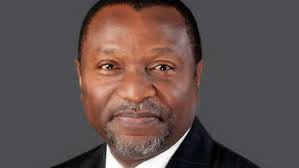Delegates to the Economic Commission for Africa (ECA) Conference of Ministers (COM2019) which rounded off their week-long deliberations on how to stimulate growth in Africa today in Marrakesh, Morocco, have called on African governments to build more resilient economies in order to have the resources to meet Africa’s developmental goals and targets over the next few decades.
To achieve this, the delegates recommended that the continent must prioritise domestic revenue mobilisation efforts and triple current rates of growth.
The week-long conference brought together policy makers who were also urged to fast-track the digitalisation of their economies as a means of improving efficiencies, creating jobs and modernising systems and institutions.
The ministers projected that with an increase of 12-20% in tax collection complemented by fiscal prudence to strengthen a social compact between government and its people, Africa can raise up to $400 billion and go a long way in funding its current $600 billion financing gap.
While agreeing that digitisation, provides an opportunity, to raise taxes as well as greater transparency and better governance, the conference delegates were also cautious about its challenges, in terms of what to tax and where to tax it, thus making it ever easier to shift profits and compounding the estimated $50bn loss the continent faces from illicit financial flows.
Among the topical issues deliberated upon at the forum was the African Continental Free Trade Area (AfCFTA) now on the brink of being operationalised. This requires 22 countries to ratify the agreement and during the event, Ethiopia ratified it, bringing the total number to 21 countries.
Commenting on the potential economic gains of the AfCFTA, Morocco’s Minister of Economy and Finance, Mohamed Benchaaboun, said: “The AfCFTA is a great opportunity to accelerate what has been done bilaterally with some African countries. This will help bring growth to a higher level in a co-development approach on the trading block that could be one of the largest in the world.
However, speakers at the conference cautioned that the enormity of the challenges of implementing the agreement should not be under-estimated.
The conference brings together African Ministers of Finance, Planning and Economic Development or their representatives. This year it was held under the theme – Fiscal policy, trade and the private sector in the digital era: A strategy for Africa.
The discussions emphasised on how and why African countries should take full advantage of the opportunities offered by digitalization, to accelerate growth to double digits by 2030.
In his remarks, the ECA Executive Secretary, Vera Songwe, harped on the fact that although Africa was still growing, with GPD growth expected to increase to 3.4 percent in 2020 from 3.2 percent this year, the continent needs to triple its growth rate in order to realise its developmental goals.






